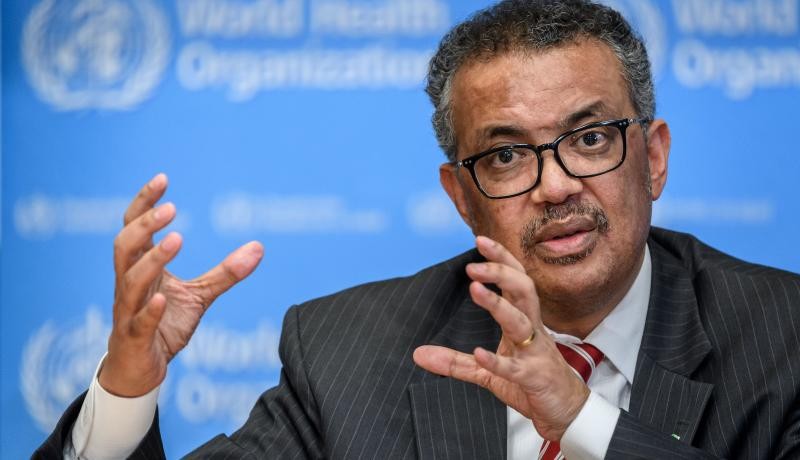
The World Health Organization (WHO) declared the spread of COVID-19 to be a Public Health Emergency of International Concern (PHEIC) on January 30 this year and then characterized it as a pandemic on March 11.
Declaring a PHEIC is the highest level of alert that WHO is obliged to declare, and is meant to send a powerful signal to countries of the need for urgent action to combat the spread of the disease, mobilize resources to help low- and middle-income countries in this effort and fund research and development on needed treatments, vaccines and diagnostics. It also obligates countries to share information with WHO.
Once the PHEIC was declared, the virus continued to spread globally, and WHO began to be asked why it had not yet declared the disease a pandemic. But there is no widely accepted definition of a pandemic, generally it is just considered an epidemic which affects many countries globally.
Potentially more deadly
The term has hitherto been applied almost exclusively to new forms of flu, such as H1N1 in 2009 or Spanish flu in 1918, where the lack of population immunity and absence of a vaccine or effective treatments makes the outbreak potentially much more deadly than seasonal flu (which, although global, is not considered a pandemic).
For COVID-19, WHO seemed reluctant to declare a pandemic despite the evidence of global spread. Partly this was because of its influenza origins — WHO’s emergency programme executive director said on March 9 that ‘if this was influenza, we would have called a pandemic ages ago’.
He also expressed concern that the word traditionally meant moving — once there was widespread transmission — from trying to contain the disease by testing, isolating the sick and tracing and quarantining their contacts, to a mitigation approach, implying ‘the disease will spread uncontrolled’.
WHO’s worry was that the world’s reaction to the word pandemic might be there was now nothing to be done to stop its spread, and so countries would effectively give up trying. WHO wanted to send the message that, unlike flu, it could still be pushed back and the spread slowed down.
In announcing the pandemic two days later, WHO’s director-general Dr Tedros Adhanom Ghebreyesus reemphasised this point: ‘We cannot say this loudly enough, or clearly enough, or often enough: all countries can still change the course of this pandemic’ and that WHO was deeply concerned ‘by the alarming levels of inaction’.
The evidence suggests that the correct message did in fact get through. On March 13, US president Donald Trump declared a national emergency, referring in passing to WHO’s announcement. On March 12, the UK launched its own strategy to combat the disease. And in the week following WHO’s announcements, at least 16 other countries announced lockdowns of varying rigour including Austria, Belgium, Canada, Czech Republic, Denmark, Finland, France, Germany, Hungary, Netherlands, Norway, Poland, Portugal, Serbia, Spain and Switzerland. Italy and Greece had both already instituted lockdowns prior to the WHO pandemic announcement.
It is not possible to say for sure that WHO’s announcement precipitated these measures because, by then, the evidence of the rapid spread was all around for governments to see. It may be that Italy’s dramatic nationwide lockdown on March 9 reverberated around European capitals and elsewhere.
But it is difficult to believe the announcement did not have an effect in stimulating government actions, as was intended by Dr Tedros. Considering the speed with which the virus was spreading from late February, might an earlier pandemic announcement by WHO have stimulated earlier aggressive actions by governments?
Declaring a global health emergency — when appropriate — is a key part of WHO’s role in administering the International Health Regulations (IHR). Significantly, negotiations on revisions to the IHR, which had been ongoing in a desultory fashion in WHO since 1995, were accelerated by the experience of the first serious coronavirus outbreak — SARS — in 2002-2003, leading to their final agreement in 2005.
Under the IHR, WHO’s director-general decides whether to declare an emergency based on a set of criteria and on the advice of an emergency committee. IHR defines an emergency as an ‘extraordinary event that constitutes a public health risk through the international spread of disease and potentially requires a coordinated international response’.
In the case of COVID-19, the committee first met on January 22-23 but were unable to reach consensus on a declaration. Following the director-general’s trip to meet President Xi Jinping in Beijing, the committee reconvened on January 30 and this time advised declaring a PHEIC.
But admittedly, public recognition of what a PHEIC means is extremely low. Only six have ever been declared, with the first being the H1N1 flu outbreak which fizzled out quickly, despite possibly causing 280,000 deaths globally. During the H1N1 outbreak, WHO declared a PHEIC in April 2009 and then a pandemic in June, only to rescind both in August as the outbreak was judged to have transitioned to behave like a seasonal flu.
WHO was criticized afterwards for prematurely declaring a PHEIC and overreacting. This then may have impacted the delay in declaring the Ebola outbreak in West Africa as a PHEIC in 2014, long after it became a major crisis. WHO’s former legal counsel has suggested the PHEIC — and other aspects of the IHR framework — may not be effective in stimulating appropriate actions by governments and needs to be reconsidered.
When the time is right to evaluate lessons about the response, it might be appropriate to consider the relative effectiveness of the PHEIC and pandemic announcements and their optimal timing in stimulating appropriate action by governments. The effectiveness of lockdowns in reducing the overall death toll also needs investigation.
Dr Charles Clift, Senior Consulting Fellow, Global Health Programme.
